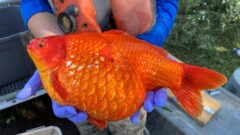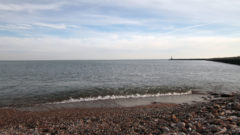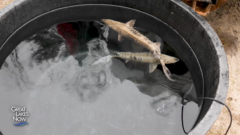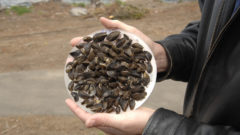How safe are Great Lakes fish to eat? Depends on who you ask
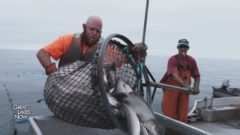
Catching and eating fish is a way of life for many people around the Great Lakes and connecting St. Lawrence River, but decades of industrial pollution have made it unsafe to eat too many, too often. The advice about how many and how often can vary wildly depending on which jurisdiction, even though the fish don’t care about the lines humans draw on a map.
Great Lakes Now
https://www.greatlakesnow.org/2024/02/how-safe-great-lakes-fish-to-eat-depends-on-who-you-ask/

